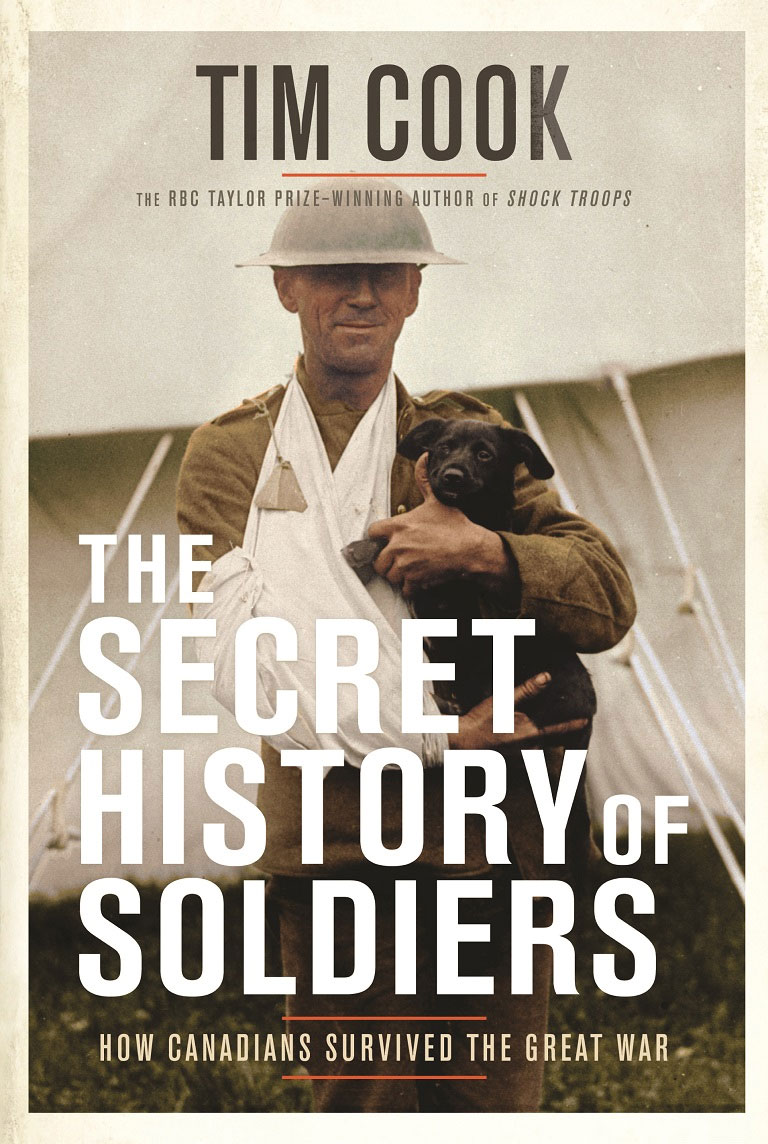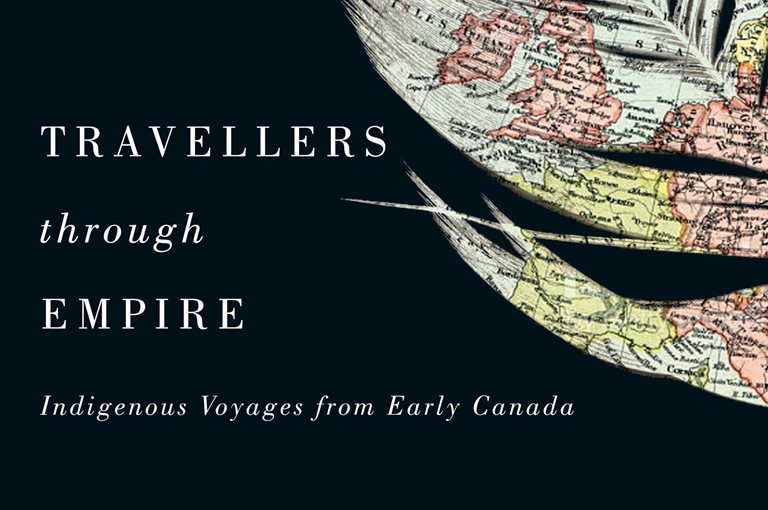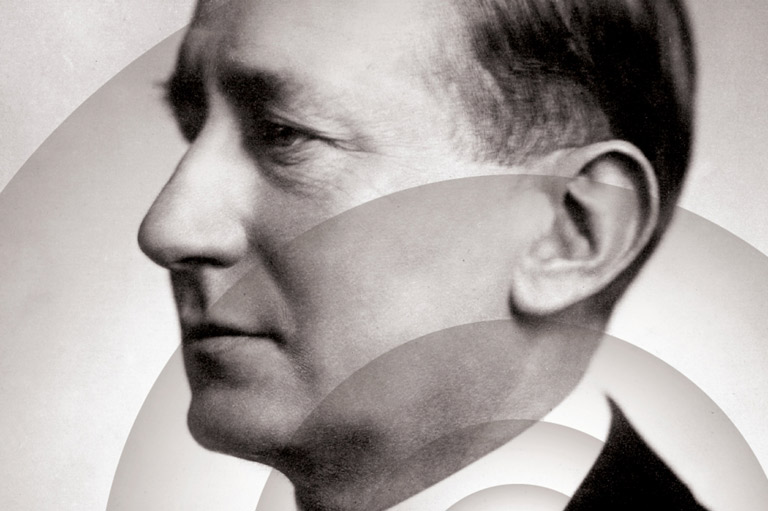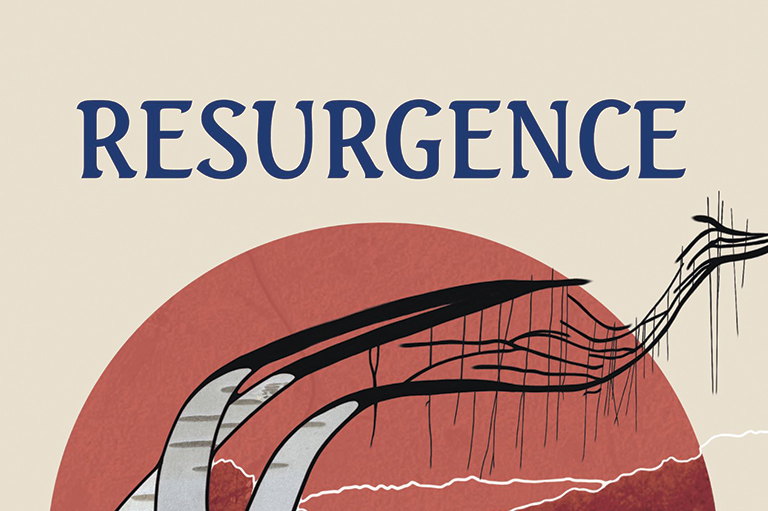Down Time

Tim Cook’s fall 2018 book The Secret History of Soldiers: How Canadians Survived the Great War looks at the daily lives of combatants during the First World War. Non-combat activities ranged from producing trench newspapers and live entertainment to the creation of a feeling of home and the development of unique words and phrases. Alison Nagy spoke with Cook about his book and about how these and other coping mechanisms helped Canadian soldiers to endure the horrors of war.
Why was it important for you to fill in the gaps in the study of the Great War?
I’ve been studying the Great War for about twenty years, and I’ve written on many aspects — battles, commanders, campaigns, logistics, politics, the home front. But I’ve always been drawn to the soldiers, and I’ve always wanted to know what motivated them. How did they cope? How did they endure? The greatest way to do that, I think, is to read their letters, read their diaries, read their memoirs — and I have had a great pleasure in doing that over this time period.
I’ve read thousands and thousands of letters, and that is where this book comes out of — their writings, their thoughts, their beliefs. It’s called The Secret History of Soldiers partly because the history I am talking about — this cultural history, the use of culture as a shield, the creation of a unique soldier society to cope and endure — is not part of the official record…. So it’s a very intimate history. It’s very much about the soldiers themselves, and, I think, it tells a very different story about Canada’s First World War.
Can you share a bit about the experience you had when writing this book? Was it different than the process you’ve had for your other books?
This is a book that goes back to the beginnings, to when I was a young historian. I was at the Royal Military College of Canada and was doing a master’s degree there in 1995–96. I was researching gas warfare in the First World War, and that became my first book, No Place to Run. …
As I was researching gas, I began to see references to this unique culture that I’m writing about here: the songs they sang, the slang they used, the swearing that is prevalent in this very masculine society, the creation of trench newspapers, theatre behind the lines, sports — all of which is really the focus of this book. That isn’t to say that I’ve been working on this non-stop for 20 years. This is my 11th book.… But I have, to some degree, been living with this story for 20 years, and I felt it was now time to write it.
What was the role of the camaraderie between soldiers?
One of the most prevalent tropes, or narratives, or themes of the First World War is shell shock…. Novelists, playwrights and filmmakers almost always include shell shock within any study of the First World War, and it’s important to acknowledge that mental trauma. But the question that always struck me is, why didn’t they all break down? If you spent a year, or eighteen months, or two years, or four years at the front, how did you survive?
And so that was really the core of what I was looking at — and it’s the culture, I argue, that is absolutely crucial to exploring the many ways that soldiers put up shields to deal with this traumatic landscape of of death and destruction in which they are fighting, and living, and scrambling to survive.
One thing that really struck me was the experiences of these soldiers, and the slang they created, and the friendships that were formed. It just so happened that this coming-of-age time for so many of these men was at war, in the trenches.
This mass of men was drawn from across the Dominion of Canada, deposited in England for training camps and then sent into this landscape of destruction. And how they come together, how they learn to fight, how they continue to keep fighting, is absolutely crucial to understanding the war.
We acknowledge that in terms of questions of camaraderie. But my book The Secret History of Soldiers is really one of the first to explore the inner workings of this society, which has a very different component to it. One thing is this idea of young men, and for the most part young men with similar interests, and how they are transformed into citizen soldiers but continue to remain citizens.
And so the letters home — they want to know about the local baseball team, they want to know about how the farm is doing, they want to know who has enlisted and who hasn’t. They sing the latest pop songs of the day, and they take those songs and they turn them into their own soldier songs.
So we see a blending of cultures here — a civilian culture that then comes into the military and gets transformed. And I think the interesting part is how those soldiers use that to distinguish themselves, to create a new sense of identity, to shield themselves, and also maybe to distance themselves from civilian society.
They’re in a very traumatic and terrible world of destruction and death, and one of the ways they cope is to create their own tribe, their own group, that is insulated from everyone else. And that is of course a classic way for relatively young people to go forward into the world. What’s unique about this, of course, is that they are doing this within this site of great destruction.
There’s a section in the book where you talk about how the soldiers knew very little about what was going on in the grander scheme of the war. They knew that they were in their trench, they were doing what they needed to do to survive, and if they were told to go over they went over. But in terms of the more elaborate chess game of the war, they probably knew more about what was going on at home than about the war.
One of the things I focus on in the book, because it’s so prevalent in their letters, is the rumour campaign. They didn’t know much about the larger war effort, so within this vacuum all of these guys who have a lot of free time on their hands … talk, and they speculate, and there are wild rumours that move through the trenches.
Drawing upon the scholarship of a wide field of study that looks at the importance of rumours, I argue, that these are important stories. A lot of them are not true: The war will be over next month; the Kaiser has been assassinated; there’s a corpse’making factory on the German side where they’re turning their soldiers into tallow. They’re wild speculation, but it shows the uncertainty, the fear, the need to fill this vacuum.
They also create their own newspapers, and that’s a fascinating part of the story. There were dozens of newspapers created by the soldiers for the soldiers. This was an army of citizen soldiers, so it drew from journalists, cartoonists, poets who came together. This is where we see a lot of their culture, and it is a source that I was able to draw upon — these these really rare newspapers — to tease out the cartoons that mattered and the poetry.
There are themes that emerge. There’s a very strong anti-authoritarian theme. They’re pushing back against the officers; they’re pushing back against the high command. And this, too, is a part of this culture that I that I lay out in the book by looking at various aspects and seeing how the various parts are creating this secret soldier society.
You talk about the acquiring of souvenirs and the creation of trench artwork by soldiers. How widespread were these activities amongst Canadian soldiers?
It’s fascinating. The soldiers, they all collect everything, they even create their own word — they’re “souveniring.” They’re grabbing their trophies from the war, and some of the more skilled ones are creating trench art. This, too, is a part of the secret culture, and I think it reminds us that in a space of tremendous destruction and death there was still a creative impulse — and that’s what we see partially in the soldiers’ culture.
When the war ended and Canadian soldiers returned home, in what ways did they try to maintain this exclusive community, this soldier society?
The book’s final chapter looks at how culture comes home and the places where it doesn’t. There was a vibrant death culture on the Western Front — the superstitions, the supernatural. That for the most part doesn’t make it back to Canada. The wild swearing in this hyper-masculine society does come back to Canada, but it gets toned down as the soldiers reintegrate back into society.
Things like songs do survive deep into the postwar years, and they become a means by which veterans who find each other band together, either in the Legion halls or in their unit associations. They stay in touch with one another, and they keep up the culture of the trenches, which has been transformed into a culture of veterans.
Themes associated with this article
Advertisement
You might also like...

Our online store carries a variety of popular gifts for the history lover or Canadiana enthusiast in your life, including silk ties, dress socks, warm mitts and more!









